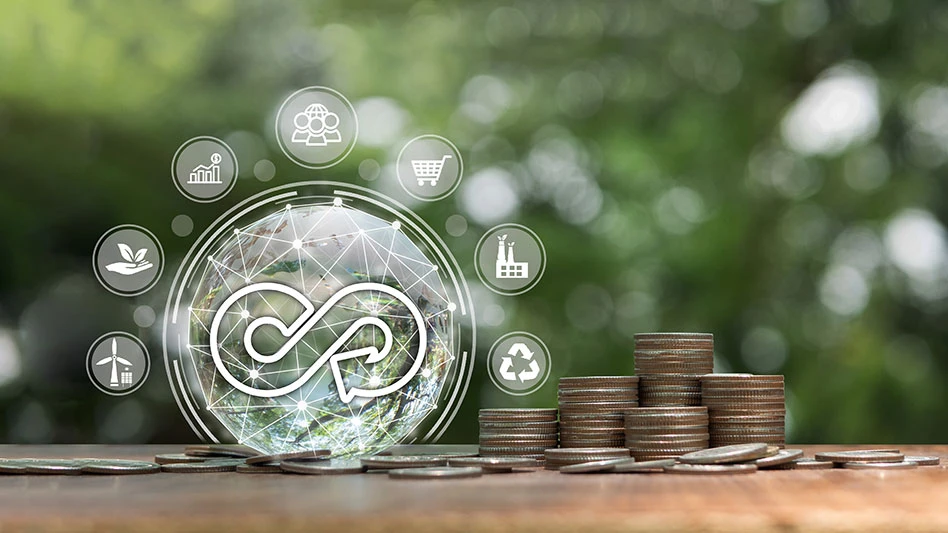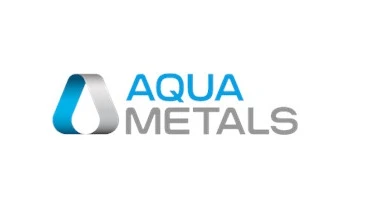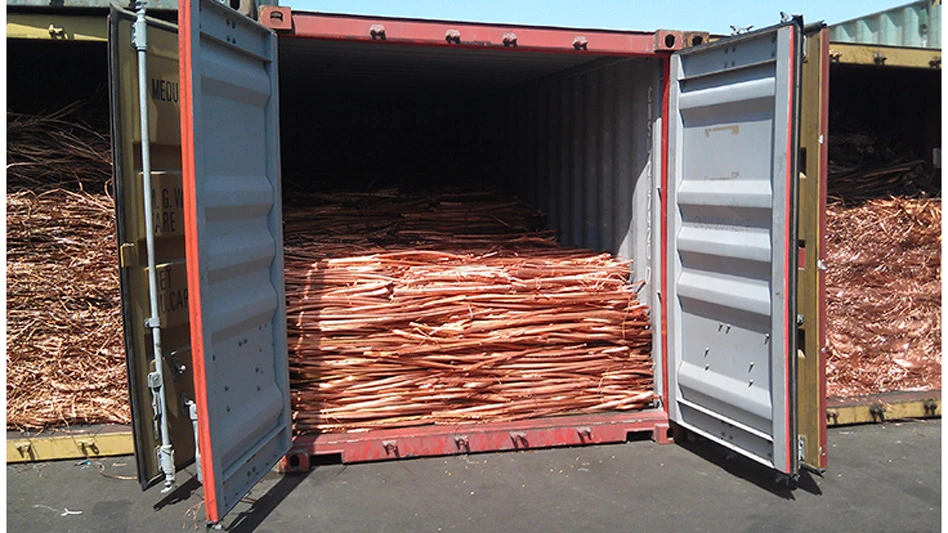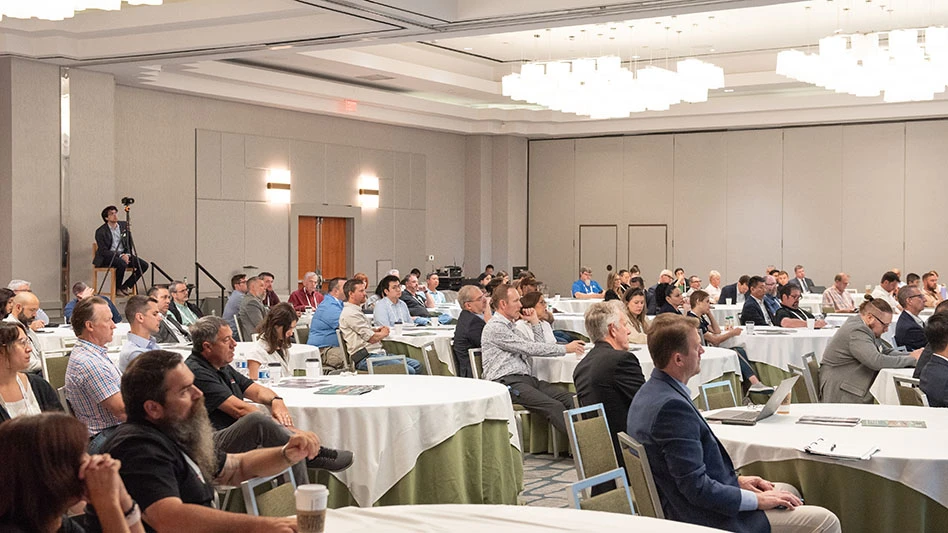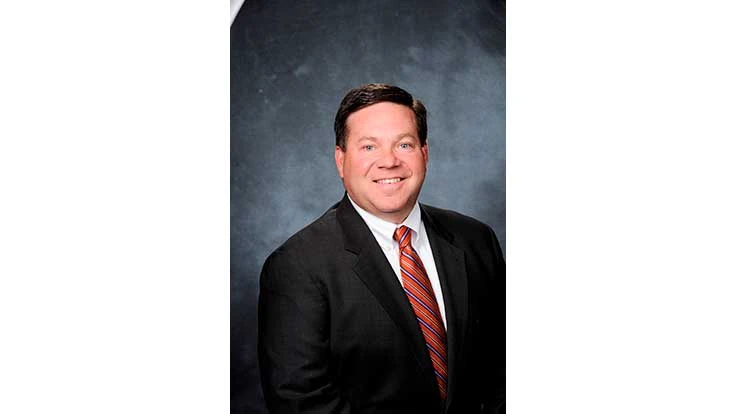
In early September, Atlanta-based Cox Enterprises, a leading communications, media and automotive services company, announced that it had recycled 100,000 tons of materials since 2013. The company says this milestone coincided with the 10th anniversary of the company’s Cox Conserves sustainability program, which has a goal of achieving zero waste to landfill by 2024.
Robert Fairey, senior director of energy procurement waste diversion, says the company has achieved this milestone in part because it takes a holistic approach to waste management. “We approach waste management as resource management, understanding that every material is a commodity and has a place in the market,” he says.
Across its divisions, Cox says it is engaged in projects to reduce consumption and recycle or compost materials. These efforts are diverting materials from landfills, decreasing consumption of natural resources and reducing the energy and emissions associated with manufacturing new products, according to the company.
Cox says it has invested more than $1 million in recycling projects. For instance, the Atlanta Journal-Constitution, part of Cox Media Group, became the first U.S. newspaper to receive Gold-level certification from the U.S. Zero Waste Building Council in 2016. The same year, Cox launched nearly 40 new site-specific recycling and composting programs across the country.
In 2017, the company opened the doors to its Golden Isles Conservation Center, a facility that uses “an eco-friendly process to break down tires into their original components,” Cox Enterprises says. The center has the capacity to remove the equivalent of 5 tons of tires from landfills and waterways daily.
Fairey shares more details about the Cox Conserves program and the company’s recycling-related achievements in the Q&A below.
Recycling Today (RT): When did Cox first begin to prioritize sustainability and how have those priorities evolved over time?
Robert Fairey (RF): Cox Enterprises formally created Cox Conserves, our national sustainability program, back in 2007. The program focused on inspiring eco-friendly activities among our operations, employees, communities and customers. At that time, our operational goal was focused solely on carbon.
Our chairman wanted to make sure we were reducing our impact in every way possible, so we expanded our operational goals to include water and waste in 2014.
Our current goals are to achieve zero waste to landfill by 2024 and become carbon and water neutral by 2044.
RT: What materials represent the largest recycling opportunity for Cox across your operations? What kind of tonnages are we talking about?
RF: Cox Enterprises is a diversified company, so we operate across multiple industries, such as telecommunications, media and automotive services. This gives us a variety of opportunities and waste streams. To name just a few, we have paper, cardboard, food waste, e-waste, cables, car bumpers and tires. We recycle over 30,000 tons a year and look for out-of-the-box solutions and new technologies.
We realized that our auto auction company touches about 80,000 tires each year. We brought a new technology over to the U.S. earlier this year that has the capability to recycle and repurpose the equivalent number. The Golden Isles Conservation Center breaks down the tires into their original components so they can be repurposed.
RT: How do you determine which recyclers you will work with in a given market or do you retain the services of a sustainability/waste diversion company that manages that for you?
RF: We went through an extensive process a few years back to find a waste management partner. We needed someone who could work with us in locations across the nation and across multiple types of materials and facilities. We have television and radio stations, newspaper printing facilities, call centers, data centers, auto auctions, warehouses, retail stores and traditional office space.
We have since been partnering with Rubicon (based in Atlanta) to recycle and repurpose materials our facilities.
Our employees also volunteer at ocean and river cleanups across the nation, and Rubicon has helped collect the materials at these events.
RT: Can you explain your holistic approach to waste management? How do waste reduction, strategic partnerships for e-scrap and customer engagement play into this strategy? Can you provide me with examples of benefits you’ve seen in each of these areas?
RF: We approach waste management as resource management, understanding that every material is a commodity and has a place in the market. We partner with vendors who share our views on resource management and are committed to recycling both our e-scrap and other hard-to-recycle items, such as cables and cords, into the best end use markets. Our supply chains are also dedicated to the investment recovery process, where they focus on opportunities to reuse, repurpose and extend the life of our materials.
We look at every way possible to repurpose materials. We’ve also looked at ways to change behavior and make it easy for employees to participate. At our campus in Atlanta, we eliminated plastic water bottles and encourage employees to embrace reusable containers. We also had a “Say No to To Go” campaign to encourage employees to use dishes versus disposable containers in our cafeteria.
Our Cox Communications company has customer recycling collections for e-waste. Project TWIG (turning waste into growth) is one idea that I love. We recycle materials and then donate the money we receive back to nonprofits in the community. It’s a win-win.
RT: What are some of the issues/concerns you’ve had to overcome when it comes to e-scrap management?
RF: Privacy is important, so Cox partners with e-scrap vendors who adhere to stringent environmental, domestic de-manufacturing and privacy standards.
RT: What role does reuse and redeployment play in terms of managing e-scrap?
RF: This is a huge opportunity. We’re often able to redeploy equipment across our business units. For example, we harvest components during set-top box recycling for reuse in manufacturing new boxes.
RT: What solutions exist for different material streams that Cox produces in its operations?
RF: A Cox best practice is to implement single-stream recycling wherever possible.
We emphasize the use of takeback programs with our vendors who share our responsibility of engaging in sustainable practices. For example, our automotive auction business works closely with vendors to implement takeback programs for items such windshields, cores, bumpers and batteries.
We have also sourced a female-owned business to recycle litho plates, a unique waste stream from our newspaper business.
RT: What return have you seen in terms of your investment in recycling and waste management?
RF: At Cox, we’ve always recognized that our sustainability program must be financially sustainable. In other words, successful resource management is both efficient and economically viable.
As a private company, we don’t share specific dollar amounts, but I can confirm that waste management has had a positive return.
Latest from Recycling Today
- USTR announces phased measures designed to address China’s shipbuilding dominance
- APR, RecyClass release partnership progress report
- Clearpoint Recycling, Enviroo sign PET supply contract
- Invista expanding ISCC Plus certification program
- Redwood partnership targets recycling of medium-format batteries
- Enfinite forms Hazardous & Specialty Waste Management Council
- Combined DRS, EPR legislation introduced in Rhode Island
- Eureka Recycling starts up newly upgraded MRF
